Agora is professional reading journal for History teachers. Each issue provides perspectives on a particular theme, from curriculum-focused content to pedagogical practice, along with teaching strategies, classroom activities and educational resources addressing the broader History curriculum.
Reflection
Editorial
From Public Assertions to #Activism: How Protest Has Changed over Time • There is continuity and change in the history of protest, from ancient Rome through to modern civil rights movements as recent as Extinction Rebellion.
Australian Jewish Antifascism and Holocaust Memory • Australian Jewish communities in the 1940s and 1950s sought to achieve Jewish safety from a re-emergence of fascism by finding common ground with movements fighting colonialism and racism in other parts of the world.
The Eight-Hour Movement: A Campaign for the Rights of Labour • Mid-nineteenth century workers had basic civil and political rights, but long working hours meant they could not exercise these rights.
Here to Stay! 25 Years after the 1998 Waterfront Dispute • In 1998 the Coalition government sought to break a powerful union representing Australia’s dock workers. The ramifications have been much wider for Australian workers today.
Is Eureka Really the Birthplace of Australian Democracy? • The Eureka rebellion is a pivotal moment in Australian history, but what rights were actually gained in its aftermath?
The Decline of the Governor-General’s Political Powers and Prerogatives • The decline in the governor-general’s influence since Federation reveals the history of Australia’s disentanglement from Imperial British control.
The Penalty Is Death: Executions in Victoria • In 1967, Ronald Ryan was the last person to be executed in Victoria. Before then, who was hanged and who was not depended on the political party in government.
Histories of Abortion, Rights and the Law in the USA and Australia • Rights discourses and their links to ideas of choice and freedom have evolved dramatically in the decades since abortion first became lawful in the United States and Australia.
A Taste of Rights and Freedoms through a Mock Referendum • A mock referendum on an Indigenous Voice to parliament is a contemporary way for students to consider the extent to which the rights of Indigenous Australians have changed since the 1967 referendum.
Civil Rights on Trial in the Classroom • Stan Grant’s farewell address on Q&A is a powerful and contemporary way to prime students for an examination of the American civil rights movement through a mock trial activity.
Enlistment in Victoria during World War II: An Interactive Virtual World • HTAV has developed a virtual recruitment centre that enables students to meet the types of people who enlisted to serve in World War II and discover the reasons they enlisted.
Dual Coding: A Strategy for Organising Knowledge • Working memory can only process up to four new items of information at a time, but students can retain knowledge more efficiently when it is introduced both verbally and visually.
Writing a History Unit from Scratch • Developing a History unit for the first time is a daunting prospect, but there are many resources you can draw on for help—including the wisdom and energy of your students.
Historical Empathy, Creativity and the Unessay • The unessay offers a mode of assessment that plays to students’ strengths, piques their interest, and develops a deeper historical understanding that emerges from empathy and creativity.
Kritikos • Reviews
Agora
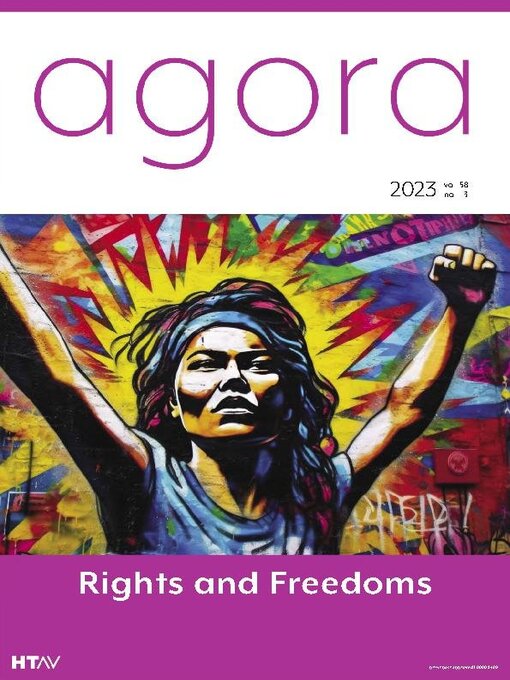
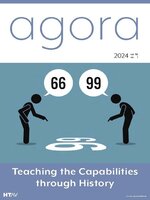 Vol 59 No 1 2024
Vol 59 No 1 2024
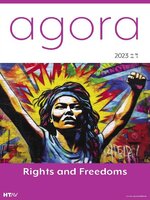 Vol. 58 no. 3 2023
Vol. 58 no. 3 2023
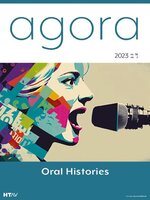 Vol. 58 no. 2 2023
Vol. 58 no. 2 2023
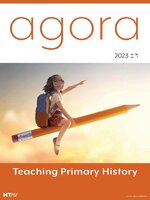 Vol. 58 no. 1 2023
Vol. 58 no. 1 2023
 Vol. 57 no. 3 2022
Vol. 57 no. 3 2022
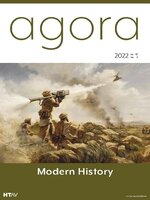 Vol. 57 no. 2 2022
Vol. 57 no. 2 2022
 Vol. 57 no. 1 2022
Vol. 57 no. 1 2022
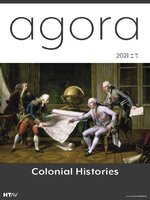 Vol. 56 no. 3 2021
Vol. 56 no. 3 2021
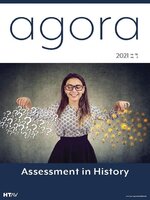 Vol. 56 no. 2 2021
Vol. 56 no. 2 2021
 Vol. 56 no. 1 2021
Vol. 56 no. 1 2021
